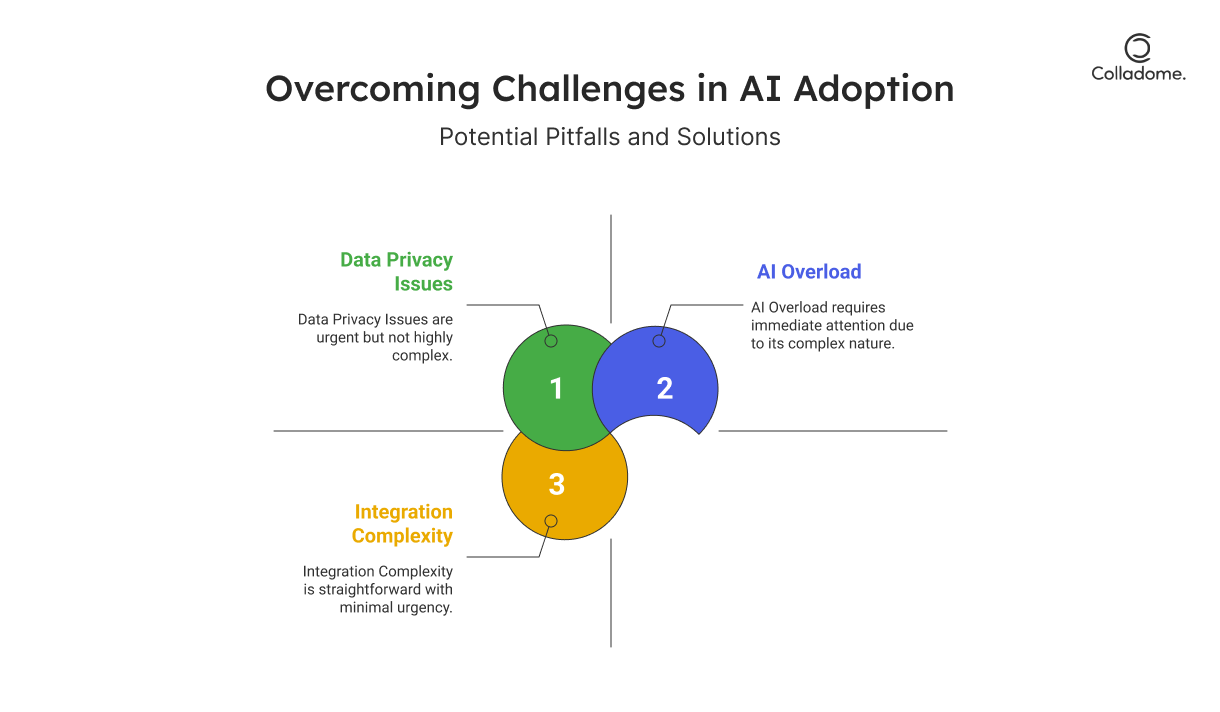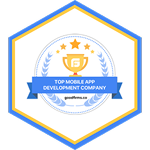“AI in digital marketing isn’t just the future—it’s happening now. Are you riding the wave or watching it pass you by?”
Introduction
In 2025, if you’re not using AI in digital marketing, you’re already behind the curve. The game has changed, and Artificial Intelligence is leading the charge. Gone are the days of guesswork and blanket marketing strategies—AI has stepped in to offer businesses a level of precision and personalization that traditional methods can only dream of. Whether you’re running a B2B marketing campaign or scaling up your e-commerce marketing efforts, AI gives you the tools to outperform your competitors and take your brand to the next level.
Think about it—AI allows you to predict customer behavior, automate repetitive tasks, and optimize marketing efforts in real time. It’s like having a super-powered assistant who’s got your back 24/7. And it’s not just about making life easier; it’s about outsmarting the competition and getting ahead faster than ever before.
In this blog, we’re diving deep into AI-driven marketing strategies for B2B and e-commerce businesses, giving you the lowdown on the best AI tools and tactics that are reshaping the marketing landscape in 2025. Whether you’re looking to supercharge your marketing campaigns or simply stay competitive, the time to embrace AI is now. Ready to level up? Let’s get started!
Why AI is Revolutionizing Digital Marketing:

1. Personalization at Scale:
- AI enables hyper-personalized experiences based on customer behaviors, preferences, and purchase history.
- Example: Amazon’s AI-powered recommendation engine drives 35% of its revenue by suggesting products tailored to individual tastes.
- This level of personalization helps brands deliver experiences that feel custom-built for each customer, driving higher engagement and sales.
2. Enhanced Efficiency:
- AI automates repetitive tasks like email marketing, data analysis, and customer segmentation.
- Chatbots like ChatGPT provide 24/7 customer support, improving customer satisfaction without the need for constant human input.
- Freeing up time for strategic and creative efforts, AI boosts productivity and speeds up growth for businesses.
3. Data-Driven Decision Making:
- AI analyzes vast amounts of data in real-time, offering insights into consumer sentiment and helping predict trends.
- Marketers can refine campaigns instantly, ensuring they’re always aligned with customer behavior and market changes.
- With AI, marketers can forecast future trends, making decisions based on actual data rather than guesswork, which is especially useful for B2B marketing and e-commerce.
4. Improved ROI:
- AI helps businesses target the right audience with the right message at the right time, boosting conversion rates.
- By optimizing ad targeting, AI reduces ad spend wastage, allowing for better budget utilization.
- Whether you’re running B2B marketing campaigns or growing an e-commerce business, AI ensures a higher return on investment by focusing on high-potential customers.
Key AI Concepts in Digital Marketing
1. AI-Powered Tools: The Secret Sauce
- Chatbots: These AI-powered customer service reps don’t sleep! Tools like Drift and ManyChat provide instant support, qualify leads, and even book meetings—24/7. This means no more missed opportunities, no more waiting for business hours, and a whole lot more conversions.
- Predictive Analytics: Want to know what’s coming next? Tools like Salesforce Einstein forecast consumer behavior and future trends. It’s like having a crystal ball, but based on data. With these insights, you can prepare for what’s ahead—whether it’s an upcoming shopping trend or the next big consumer demand.
- Content Generation: Struggling to keep up with your content calendar? Let AI handle it. Platforms like Jasper AI can generate blog posts, social media updates, and ad copy at lightning speed. You won’t need to hire a whole content team to keep your content engine running smoothly.
2. Personalized Email Campaigns: AI That Knows What You Want
- Forget guesswork. With AI-driven tools like Mailchimp’s AI integration, email marketing has gone from good to great. These tools analyze user behavior to ensure subject lines and email content are on point. The result? Higher open rates, better engagement, and a whole lot more conversions from your email campaigns.
3. AI in Advertising: The Bidding Revolution
- Forget about manual bidding and endless adjustments. Google Ads and Meta Ads (Facebook/Instagram) use AI for predictive bidding and audience targeting. AI knows your audience’s behavior, predicts what they want, and optimizes your bids for maximum results. So, instead of throwing money at random clicks, you’re investing in smart, AI-powered ads that really work.
4. Voice Search Optimization: Speak the Language of Your Audience
- With 58% of consumers using voice search to find local businesses, AI is here to help you optimize for conversational keywords. That means tweaking your content to sound natural, just like someone asking Alexa or Google Assistant for help. AI tools can identify voice search patterns and help optimize your SEO strategy for voice-enabled devices—putting your business ahead of the curve.

| AI Concept | How It Crushes the Game | Tools You Need |
| Chatbots | 24/7 lead-gen superheroes. Never sleep. Always work. | Drift, ManyChat |
| Predictive Analytics | Know the future. Seriously. Forecast trends, predict customer behavior. | Salesforce Einstein |
| Content Generation | Create blog posts, ads, and social media content at lightning speed. | Jasper AI |
| Personalized Email Campaigns | AI crafts emails that hit the sweet spot—higher open rates, better engagement. | Mailchimp AI |
| AI in Advertising | Smart bidding, smarter targeting. Stop wasting your ad spend. | Google Ads, Meta Ads |
| Voice Search Optimization | Tuning into how people talk, making sure your brand gets found with voice search. | AI SEO tools for voice search |
How to Implement AI in B2B & E-commerce Marketing

1. Define Your Goals Like a Boss
Before you dive into AI tools, get crystal clear on what you want to achieve. Are you focused on boosting sales, building deeper engagement, or slashing customer churn? Whether you’re selling to other businesses (B2B) or direct to consumers (e-commerce), setting clear objectives is the first step to making AI your marketing sidekick.
- B2B Goals: Generate qualified leads, streamline pipeline management.
- E-commerce Goals: Boost conversions, increase customer retention.
2. Choose the Right AI Tools (Don’t Just Wing It!)
The right AI tools will make or break your strategy. The beauty of AI is in its customization and power to solve specific problems. Choose wisely and you’ll see magic happen.
- For B2B: Tools like HubSpot and Marketo are total game-changers for AI-powered lead scoring and pipeline management. These platforms use AI to prioritize high-quality leads and automate tedious tasks, leaving you more time to close deals.
- For E-commerce: Shopify Flow and Dynamic Yield let you create hyper-personalized shopping experiences. Imagine showing each user exactly what they need when they need it. That’s AI turning your store into a conversion machine.
3. Leverage Predictive Analytics (Forecast Like a Fortune Teller)
What’s better than reacting to customer needs? Anticipating them. AI-powered predictive analytics can help you forecast customer behavior and needs before they even happen. Now that’s the kind of foresight that gives your campaigns a serious competitive edge.
- B2B: Forecast client purchasing behavior, schedule proactive touchpoints, and drive better relationship-building strategies.
- E-commerce: Predict which products customers are likely to buy next based on browsing history and buying patterns. Tailor offers in real time for maximum conversions.
4. Optimize Content Marketing (Write Content That Actually Works)
Gone are the days of blindly throwing content into the world and hoping it sticks. With AI tools like SEMrush, you can identify trending topics, optimize for SEO, and create content that gets noticed—no guesswork involved. Think of AI as your content strategist and data analyst combined, making sure every post is laser-targeted and SEO-friendly.
- B2B Content: Use AI to pinpoint what topics matter to your target decision-makers and what search terms they’re using to find solutions like yours.
- E-commerce Content: Automatically generate personalized product descriptions, blog posts, and even ad copy that resonates with your audience.
5. Test and Learn (AI Never Sleeps, So Keep Iterating)
Here’s the deal: AI is only as good as the data you feed it. Keep refining your campaigns based on AI insights. Test, tweak, and repeat. The more data you feed AI, the smarter it gets—meaning your campaigns will continually evolve and get better.
- B2B Marketing: Fine-tune your lead nurturing campaigns based on AI-driven feedback and analytics to ensure that you’re always offering the right content at the right time.
- E-commerce Marketing: Experiment with dynamic pricing, personalized recommendations, and retargeting to boost customer engagement and drive sales.
Real-Time Examples

India: The AI Powerhouses
1. Flipkart: AI-Powered Personalization for the Win
Flipkart is one of India’s largest e-commerce giants, and they’ve cracked the AI code when it comes to personalization. By leveraging AI, they provide hyper-targeted product recommendations tailored to each user’s browsing and buying history. The result? A 40% increase in sales—because when the right product pops up at the right time, customers are way more likely to click that “buy now” button.
- AI in Action: Personalized recommendations based on AI algorithms boost product relevance.
- B2B Takeaway: AI isn’t just for consumers. If you can personalize the B2B buying experience, you’ll close deals faster.
2. Zomato: AI-Driven Push Notifications That Pack a Punch
Zomato’s AI-driven push notifications are a genius move in keeping users engaged. By analyzing customer behavior and preferences, Zomato sends push notifications that feel personal, timely, and incredibly relevant. This little AI trick has led to a 3x higher engagement rate. Users are hooked, not just because of the food, but because the app speaks their language in real time.
- AI in Action: Smart push notifications based on user data increase interaction and retention.
- E-commerce Takeaway: AI-driven engagement doesn’t just boost numbers, it builds long-term loyalty.
Worldwide: AI Making Waves Globally
3. Netflix: The AI Recommendation Engine That Knows You Better Than Your Best Friend
Netflix, the king of streaming, isn’t just about offering a ton of content—it’s about offering the right content. Thanks to AI-powered recommendation engines, Netflix knows exactly what you’re likely to watch next. Their AI engine drives a staggering 80% of watched content on the platform. It’s not magic; it’s data science at its best.
- AI in Action: Personalized recommendations based on past behavior keep users glued to the screen.
- B2B Takeaway: Use AI to predict your client’s next move. Personalization is key to keeping customers engaged.
4. Unilever: AI-Driven Sentiment Analysis in Real-Time 💬
Unilever is using AI for more than just product development—they’re using it to stay ahead of their marketing campaigns. With AI-powered sentiment analysis, Unilever tracks customer feedback across social media in real-time. This allows them to tweak and adjust campaigns on the fly, keeping their branding sharp and relevant.
- AI in Action: Social listening powered by AI helps Unilever track real-time consumer sentiment and adjust campaigns immediately.
- E-commerce Takeaway: If you’re running paid ads, use AI to adjust your strategy in real-time, optimizing for the highest conversion rates.
Key Takeaways for You:

- B2B Marketing: AI isn’t just for consumer-facing businesses. Personalization and predictive analytics can elevate B2B marketing strategies to drive more qualified leads and boost engagement. Flipkart’s success proves it’s all about relevance in a saturated market.
- E-commerce Marketing: The real-time, personalized approach shown by Zomato and Netflix is a game-changer. AI helps create a more intimate relationship with your customers, increasing not just sales but also lifetime value.
- Global Leaders Leading the Way: Whether it’s Unilever fine-tuning campaigns or Netflix recommending your next binge, AI is at the core of business growth in every sector. It’s time for your marketing campaigns to tap into this.
Statistics and Figures

- AI marketing market size:
- Expected to reach $107.5 billion by 2028. (source)
- Chatbot adoption:
- 80% of businesses plan to use chatbots by 2025. (source)
- Personalization effectiveness:
- 91% of consumers are more likely to shop with brands that offer personalized offers. (source)
- ROI improvement:
- Businesses using AI see an average 30% increase in ROI. (source)
- Voice search growth:
- Predicted to account for 50% of all online searches by 2025. (source)
Conclusion
Let’s get straight to the point: AI is essential for today’s digital marketers. Whether you’re focused on B2B lead conversions or e-commerce customer engagement, AI-driven marketing strategies can give you the edge. It’s not a luxury anymore—it’s a must-have.
With AI digital marketing, you can refine everything from personalized email campaigns to predictive analytics. Tools like AI chatbots, content automation, and data-driven insights make your marketing smarter and more efficient. Look at Flipkart, Zomato, and Netflix—AI’s revolutionizing the way businesses reach and retain their customers, and it’s time you got on board.
Call to Action
What are you waiting for? The future of marketing is here, and it’s powered by AI. Start small, test, and scale your campaigns. Whether you’re in B2B marketing or e-commerce, AI tools can skyrocket your ROI.








